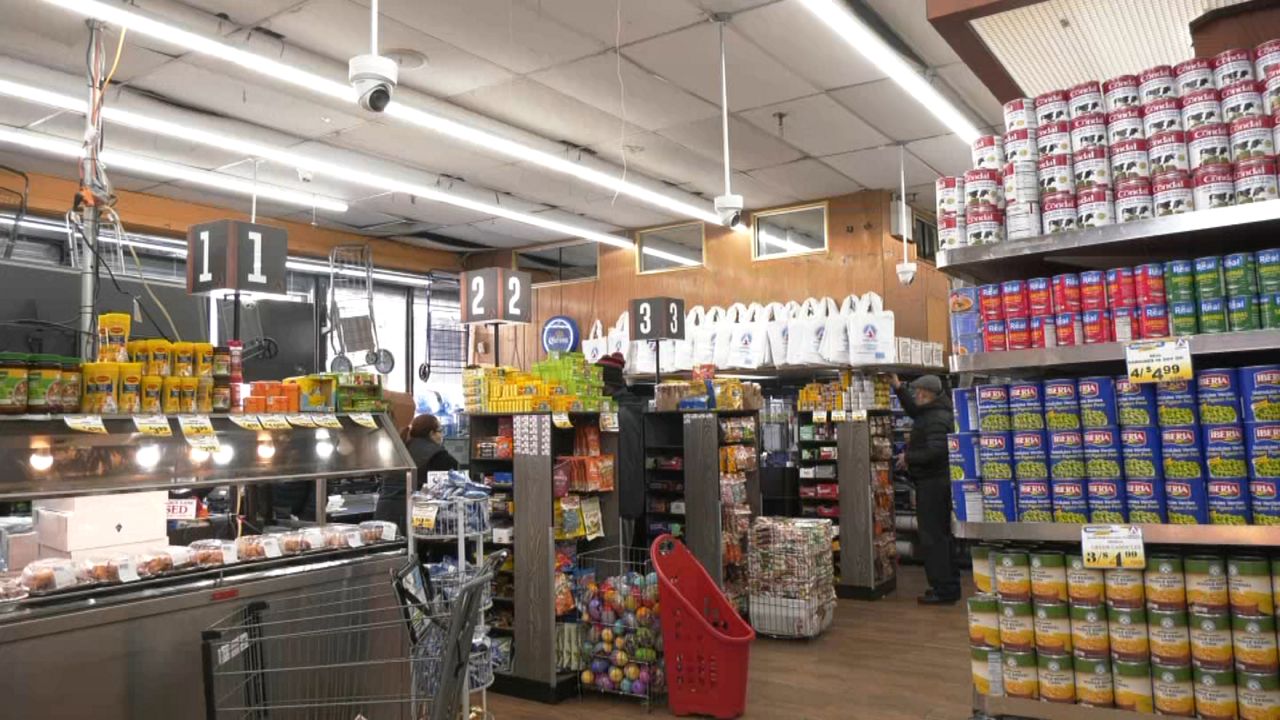One of Democratic mayoral nominee Zohran Mamdani’s big campaign promises is a five-store network of city-run grocery stores.
His rationale? Among many things, New Yorkers can’t afford groceries, he says.
But experts argue there might be more factors at play that Mamdani should consider before making any final plans.
What You Need To Know
- One of Democratic mayoral nominee Zohran Mamdani’s big campaign promises is a five-store network of city-run grocery stores, but experts argue there might be more factors at play that Mamdani should consider before making any final plans
- Described to NY1 by campaign aides, the plan includes a pilot program of five grocery stores located on city-owned land and exempt from rent and property taxes. They will obtain products at wholesale prices — and there will be no plans to turn a profit
- One industry expert said grocers already operate on thin margins, facing challenges including continued pandemic recovery, global supply chain shortages and restrictive government policies
- However, another expert said Mamdani should think even bigger and start with 20 public stores, comparing it to the Department of Defense’s commissary program
“Grocery prices are out of control. The cost of eggs and milk has skyrocketed. Some stores are even using dynamic pricing, jacking up the cost over the course of the day depending on what they can get away with. It doesn’t need to be this way,” Mamdani said in a campaign video.
“We will redirect city funds from corporate supermarkets to city-owned grocery stores, whose mission is lower prices, not price gouging,” he added.
Described to NY1 by campaign aides, the plan includes a pilot program of five grocery stores located on city-owned land and exempt from rent and property taxes. They will obtain products at wholesale prices — and there will be no plans to turn a profit.
Industry experts who have not been in contact with the Mamdani campaign offered their advice.
“Lack of predictability coming out of Washington, D.C. with the tariffs, that’s not anything a mayor can deal with,” said Mike Durant, president and CEO of the Food Industry Alliance, a trade group representing supermarkets across the state.
He said grocers already operate on thin margins, facing challenges including continued pandemic recovery, global supply chain shortages and restrictive government policies.
“The grocery store is the last touch point and they are the public facing entity of that touch point so they are the ones that receive the backlash in times of food inflation or higher costs that is out of their control,” Durant said.
“The idea of using a business’ tax dollars to compete against them is frankly offensive. A lot of these are neighborhood grocers,” he added.
Mamdani spokeswoman Dora Pekec pushed back, saying “Grocery costs are skyrocketing, leaving New Yorkers stretched thin.”
“We can’t keep ignoring a crisis that’s making the city unlivable for working families. Zohran Mamdani has a clear plan: build grocery stores in food deserts that guarantee lower prices so every New Yorker can put affordable, healthy food on the table,” she continued.
Having formerly lead Whole Foods’ grocery merchandising division, Errol Schweizer says Mamdani’s vision is the right move.
“Grocery prices have gone up, depending on the category, 30-60% in the last five years,” he told NY1. “If you’re talking about french fries and tater tots, you’re talking nearly 70% increase in price since 2019.”
Schweizer added, “40% is about what the makeup is that most grocery retailers function, they can’t run off of a markup much lower than that. To think about it another way: essentially the increase in price is about equal to what the cost of doing business is for grocery retailers.”
Schweizer says large corporations put unnecessary pressure on supply chains.
“What would a supply chain look like that operationalizes the right to food, to make sure that everybody is fed?” he said.
Mamdani should think bigger and start with 20 public stores, Schweizer argued, comparing it to the Department of Defense’s commissary program.
“Prices are 20-30% lower than typical retail and they run off of essentially a 5% markup that just covers store overhead but everything that is typically budgeted at a store level is budgeted centrally through Department of Defense and this enables service members to have access to more affordable groceries,” Schweizer said.
Recently, a taxpayer-funded grocery store tried and failed in Kansas City, Missouri. Local reporting cited high crime rates and lack of profitability despite receiving millions in economic development dollars.
“It is fair for somebody to give somebody a spot for no rent when Whole Foods, Trader Joe’s, D’Agostino’s and Gristides, they’re all paying market rents in the city and the prices reflect that,” Jeffrey Roseman, vice chairman and head of the retail division at Newmark, said.
Meanwhile, the city already owns the property occupied by several markets, like the Lower East Side’s Essex Market and Moore Street Market in Williamsburg.
But it’s unclear whether they would be selected by Mamdani as part of his plan.
“Supermarkets that have taken spaces that are just difficult spaces to lease and over the past probably decade or so, they have gone downstairs, New Yorkers have proven that they will go down one or two flights. Take an escalator, bring their shopping bags and walk back up with them,” Roseman said.
The city’s Economic Development Corporation already has tax and zoning subsidies granted to developers and grocers willing to open in so-called food deserts.
Mamdani’s campaign said it wants to end the program.
The campaign said a Mamdani administration would also include rules that bar city store competition with union grocers and “Mom and Pop” stores.
